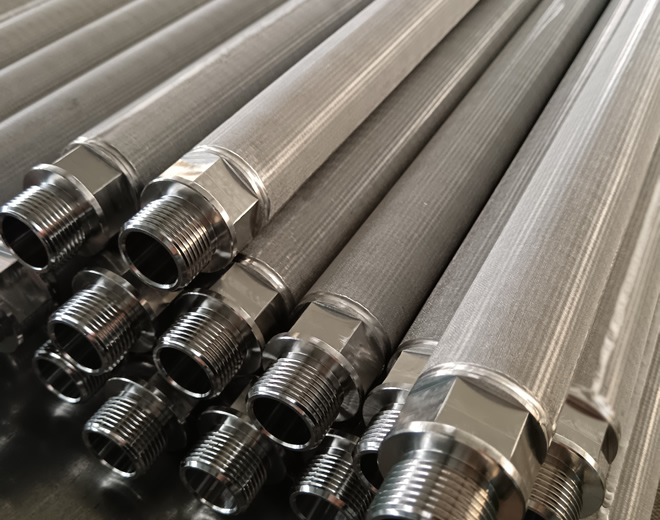
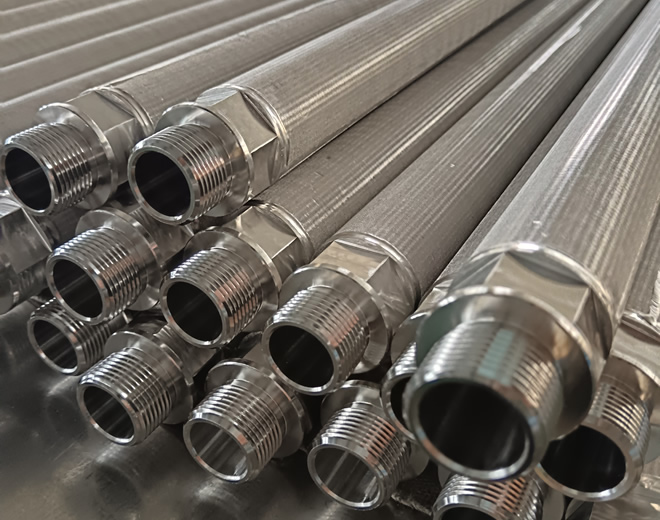
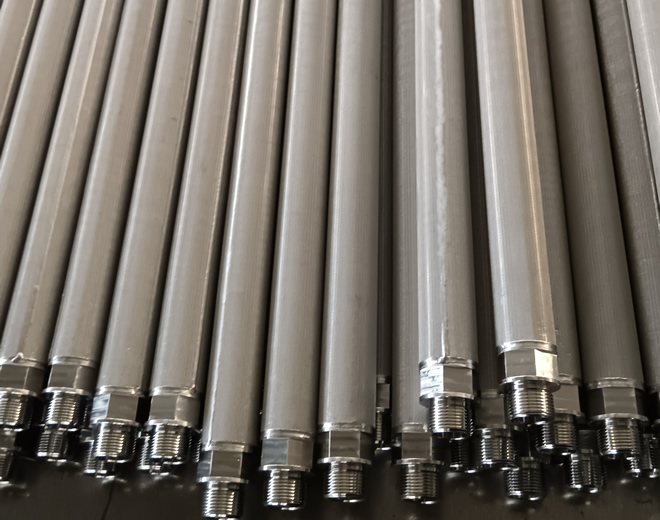
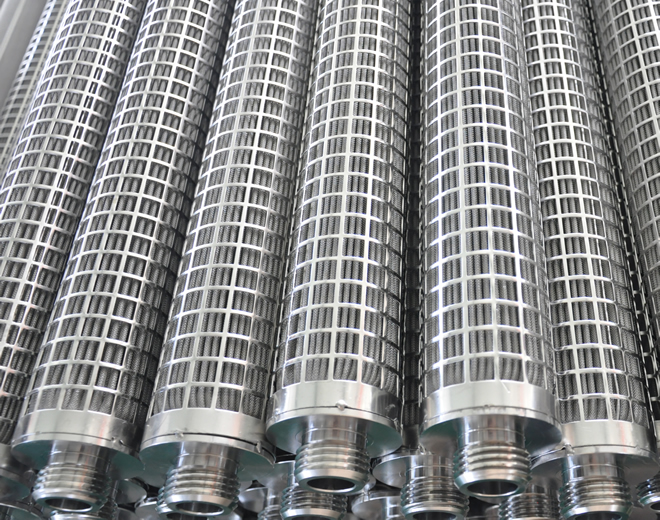
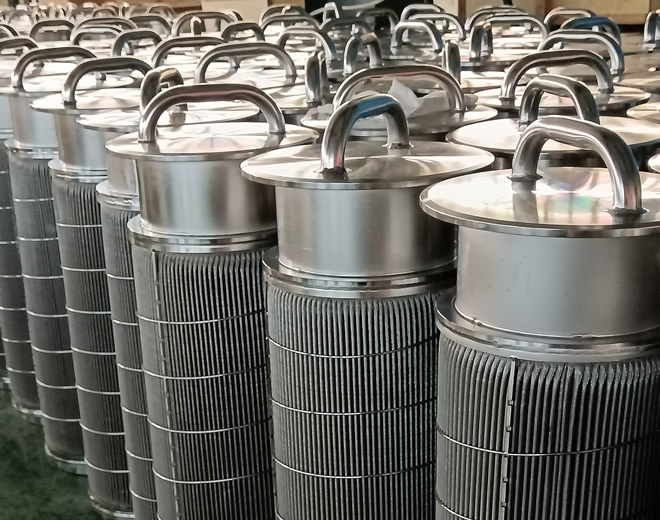





The stainless steel sintered mesh filter element is a high-performance filtration component made from multiple layers of stainless steel woven mesh through a process of precise stacking and vacuum sintering. The main material—standard five-layer sintered mesh—offers excellent corrosion resistance, high mechanical strength, and thermal stability, making it ideal for demanding industrial filtration tasks.
Thanks to its robust metallic structure, the filter element provides surface filtration, prevents fiber shedding, supports repeated cleaning and backflushing, and delivers a long service life of up to 18 to 24 months under normal operating conditions.
The sintered mesh filter works based on surface filtration. As the contaminated fluid flows through the filter element, solid particles are retained on the outer mesh surface while clean fluid passes through. With its multilayer design, the filter achieves uniform filtration precision ranging from 2μm to 200μm, ensuring stability under differential pressures up to 2.0 MPa and temperatures between -200°C and 650°C.
The internal dispersing and reinforcing layers allow for repeated cleaning (e.g., ultrasonic or backwash) without structural damage, reducing the need for frequent replacements.
The production process includes:
Material Selection: 316L or 304 stainless steel wire mesh, chosen based on filtration needs.
Layer Stacking: Usually consists of five layers—protective, control, dispersing, and two reinforcing layers.
Vacuum Sintering: Heated above 1100°C in a vacuum furnace to achieve metallurgical bonding between mesh layers.
Shaping & Welding: Formed into cylindrical, conical, or pleated shapes with TIG or plasma welding.
Interface Customization: Standard interfaces like 222/226, threaded, or flanged connections are available, with non-standard options customizable.
Sintered mesh filters are widely used in:
Chemical Industry: For filtration of resins, solvents, and acids/alkalis with superior corrosion resistance.
Pharmaceuticals: For pre- or final-stage filtration in GMP-compliant production (e.g., injection fluids, pure water).
Food & Beverage: Used for wine, syrup, plant extracts—offering clean, fiber-free output.
Water Treatment: In municipal, seawater desalination, or industrial wastewater systems.
Oil & Gas: For filtering lubricants, fuel oils, and injection water in petroleum systems.
High-Temp Gas Filtration: Suitable for flue gas or catalyst purification at temperatures up to 650°C.